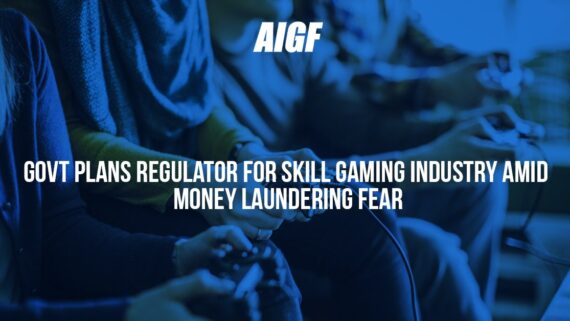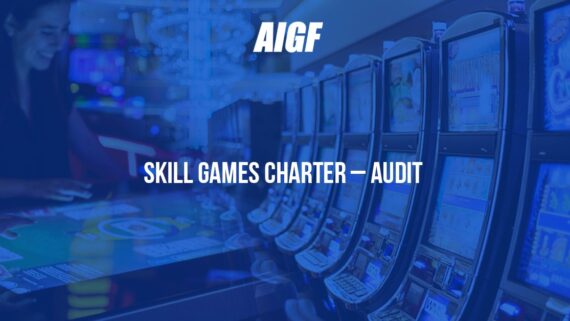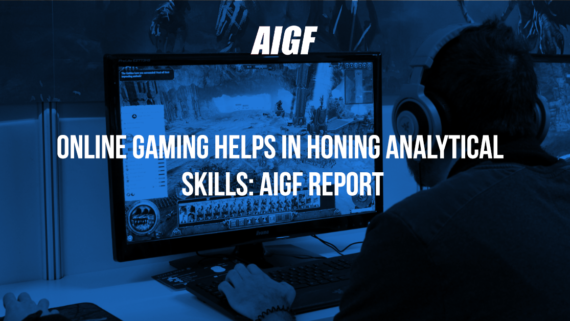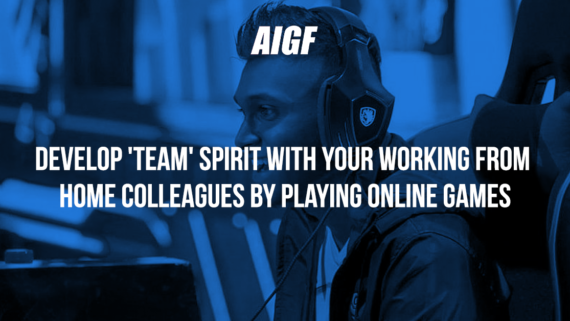“India will turn into a net exporter of games and gaming content globally in the long haul. It will be crucial in creating a ton of occupations, particularly in an area like game plans, graphic design, and so forth. We ought to keep away from indistinct administrative arrangements. We ought to have as much clarity as can reasonably be expected. There have been huge developments in the space where the distinction between games of chance and skill has been reiterated, “said Sai Srinivas of MPL.
Why India Should Regulate Online Gaming Sector With A Uniform Policy Instead Of Banning It
Many states, including Telangana, put sweeping restrictions on online gaming as they were under pressure in the mid-2010s given fraudulent illegal applications that took advantage of clients. I was an administrator in those days when numerous suicides occurred. The administrative bodies, including the police, didn’t have the ability or the fortitude to control online gaming successfully, “said Jayesh Ranjan, Principal Secretary for Information Technology, Government of Telangana, at a board conversation on regulating the online gaming sector coordinated by the All India Gaming Federation (AIGF).
“It appeared to be simpler to boycott everything, including money and gaming, instead of teaching people in general about the dangers and making an administrative system for gaming by then,” he explained.
In a conversation directed by AIGF CEO Roland Landers, James Sangma was joined by James Sangma, Cabinet Minister, Government of Meghalaya; PK Misra, a former IAS official who is a member of the Skill Games Council; Sai Srinivas, Co-Founder, and CEO, Mobile Premier League (MPL); and Dr. Sutanu Behuria, a former IAS official who is additionally a member of the Skill Games Council, in a conversation.
He admitted that the boycott was accompanied by a set of consequences. We’ve noticed that people who are serious about gaming or who rely on gaming continue to play online while using a VPN.”Fake applications keep on mushrooming; many individuals keep on being taken advantage of in the long run since there is no authorization which guarantees them that the game is protected,” he elaborated.
“The boycott has not prevented suicide. We have seen a spate of suicides happening from that point too, “Ranjan added.
The question of online gaming guidelines has become relevant as the sector has seen a sensational ascent in recruits during the pandemic. Individuals have rushed to these destinations on a huge scale, requiring an administrative system that sets up governing rules.
Key points from the conversation
For what reason does India require online gaming guidelines?
Administrative structure ingrains certainty: “An administrative framework gives certainty to individuals to play these games online because they realize that there is a controller who’s watching it.” “Guidelines could cover perspectives that are significant from the player’s perspective; it implies there ought to be morals in the framework which will assist individuals with determining some comfort,” said PK Misra.
Gaming will keep individuals from going into social evils: “The optimistic level of wages for adolescents is a lot higher than the usage levels, so there will be joblessness since individuals are not qualified.” This optimistic hole will prompt disappointment. For example, the standard wage individuals get in factories is Rs. 8,000 to Rs. 10,000 in the industrial belt in Himachal Pradesh. The chief minister might make an issue of giving 70% of the work to local people yet no Himachali needs to go there and work, but at that point, he’s disappointed. He’s not acquiring anything. He is probably going to go get drugs and prostitution, which will prompt robberies and thefts, “said Dr. Sutanu Behuria. Behuria proposed that deliberate effort be embraced to ensure how individuals interact with gaming.
Stay away from administrative vulnerability: “India will turn into a net exporter of games and gaming content globally in the long haul. It will be crucial in creating a ton of occupations, particularly in an area like game plans, graphic design, and so forth. We ought to keep away from indistinct administrative arrangements. We ought to have as much clarity as can reasonably be expected. There have been huge developments in the space where the distinction between games of chance and skill has been reiterated, “said Sai Srinivas of MPL.
Need for authorizing: “There is a need to permit the industry. There is a need to make a few security checks. The industry must be seen as a self-controller as opposed to having a policing disposition. Telangana has worked out a draught regulation and I’m trusting that this is the perfect moment to introduce it to the bureau. We have done lots of consultative activities, so it isn’t so much that the new regulation was arranged by holding a hierarchical methodology, “Ranjan said.
What ought to be remembered while coming up with an administrative structure?
States ought to guarantee they gather taxes: “We need to perceive that gaming is unavoidable. It will be very challenging to police it or manage it genuinely. The states ought to be keen on guaranteeing that they are accepting their due share. It ought to rattle off modalities to guarantee it knows the amount of taxation, “Behuria said.
Giving clarity in tax collection: “Having a rational tax slab will decisively further develop incomes for the exchequer and make a system where organizations can work effectively in maintaining their businesses also,” Srinivas suggested.
Draft standardized guidelines: “It would be an enormous benefit if all states consented to one standardized guideline concerning their positions on skill and chance games while recognizing the distinction between skill and chance simultaneously.” It would fundamentally increase the valuations of a portion of the organizations in the space because some of our companions outside India appreciate clarity in guidelines, and henceforth their valuations are much better, “Srinivas explained.
A uniform arrangement won’t cause inconveniences: In his comments, Behuria repeated Srinivas’ proposals. “We need to take a gander at having a uniform administrative arrangement, ultimately, with a national committee so India can be a unified market instead of having various arrangements of rules in various places where the administrators should change their methodology and it turns out to be significantly more confounded,” Behuria said.
Draft regulation in conference with stakeholders: “Getting everybody on board first will assist with drafting great regulations and it will deliver a tonne of income to the state since it’ll (the gaming sector) be satisfactory to the general population.” Grey administrators will vanish steadily, and consequently, existing organizations will want to contact many individuals with certainty. It will draw in investment. Numerous nations have drafted and instituted regulations. They have become market pioneers. We can become market pioneers once we have an unmistakable, stable climate, “Mira said.
How does a boycott influence the sector?
One of the greatest lacunae of blanket boycotts is that players are considered to be crooks, which is exceptionally appalling since, supposing that you’re considering players to be criminals, then it makes an obstruction as victims don’t report incidents to the police since they will be treated as lawbreakers. They are glad to not report it. I’m of the assessment that a boycott isn’t the arrangement. We want to manage it,” Ranjan said in his comments.
Gaming guidelines ought to empower, not penalize. “This sector itself is advancing, so you want to have a receptive outlook.” We will generally take a look at punishing individuals in India when we make guidelines. This is the sort of thing that ought to be kept away from no matter what. I’m not saying there ought to be no punishment, except that the approach shouldn’t be: “How would we punish these colleagues?” The approach will kill them. It must be an empowering climate to create, and we ought to escape the attitude that individuals who are in this field shouldn’t make money.
Can other states take a leaf out of Meghalaya’s Gaming Regulation Act?
James Sangma said that the state has stuck its neck out and given clarity to gaming organizations by recognizing games of skill and chance in the Meghalaya Regulation of Gaming Act, 2021. He handles a few ministers in Meghalaya’s state government like data and public relations, regulation, tax collection, and registration and stamps, among others.
Sangma explained that the state decided to emerge with this guideline because COVID-19 prompted a dip in the state’s coffers as the state is subject to the travel industry for income. “We likewise saw that many individuals were spending time on online gaming during COVID-19. This number is very consistent at the present moment; we are confident that it will continue to develop. We have previously given three administrators a brief permit to get going,” he concluded.
“The public authority of Meghalaya began with a great number of gradual steps since we’ve recently come to understand that there are regions which we take care of that are not under our administrative system yet.” It’s a work underway, and we are not unbending about this entire matter. – Sangma, James
“The essence of the matter is to guarantee close collaboration between all the players, which is the industry, the administrators, the AIGF, and regulators like us. It is the key to addressing the difficulties, “Sangma said.
Telangana has set up an online gaming board of trustees.
“We see that the scene of online gaming is very unique. It is very complex, and the public authorities can’t be the controller. We have proposed an online gaming board. Public authorities will be a part of it, but we believe that business and its affiliations should take an interest alongside retired judges and cops. It is this panel that ought to be given complete responsibility. They will settle on legitimateness and what will be allowable under games of skill, “Ranjan uncovered throughout the conversation.
He proceeded to add that the advisory group would reference three High Court decisions while drafting provisions. “The decisions have clarified that it is undemocratic to boycott everything,” Ranjan informed Landers. The public authority won’t have any sort of rejecting power or a dominant say in the working of the panel. It will be exceptionally democratic. ”
Yet, he likewise cautioned the gaming industry that they shouldn’t fail to remember the conditions under which boycotts were presented in various states.
“We should ensure that solid and intense security checks are set up which deal with KYC, utilization of endorsed payment gateway, anti-addiction measures, extortion, anti-tax evasion, complaint redressal mechanism, data assurance rules, avoidance of mischieving advertising, and so forth,” Ranjan suggested.
Credit: Medianama











Comments
Comments are closed.